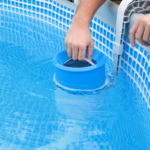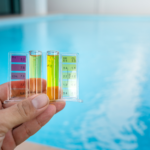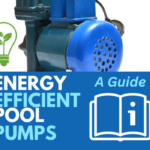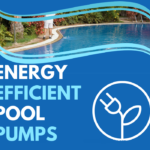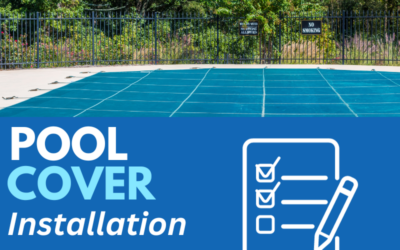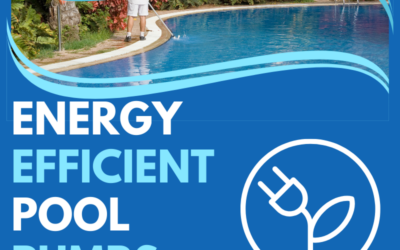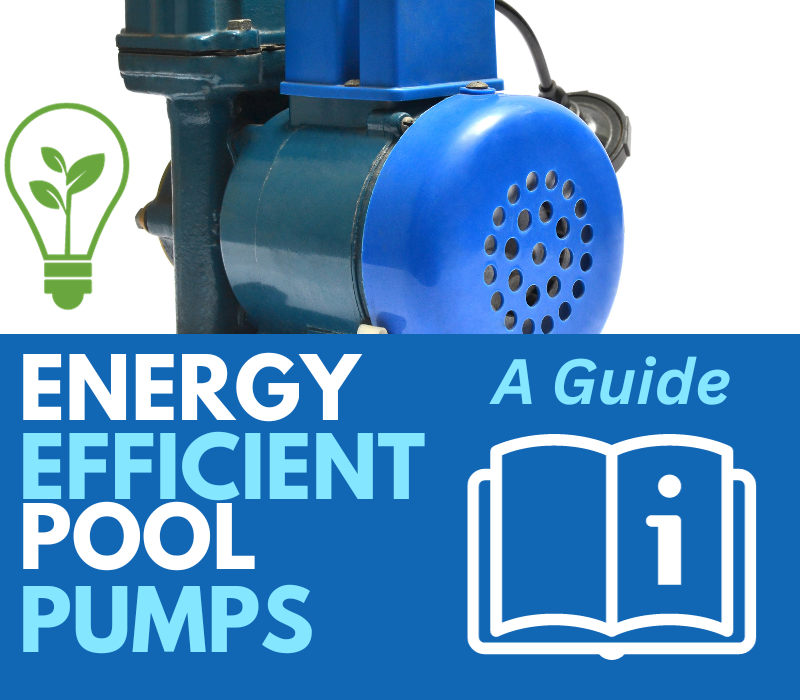
Energy efficient pool pumps are a game-changer in the world of pool maintenance, offering a myriad of benefits that extend beyond just cost savings. As a pool owner or a potential buyer, understanding these advanced systems can help you make informed decisions about your pool’s upkeep and contribute positively to the environment. This article will delve into the workings of energy efficient pool pumps, their advantages, the options available, and how to select the right one for your needs.
Understanding Energy Efficient Pool Pumps
When it comes to pool maintenance and the equipment it entails, a comprehensive understanding of energy efficient pool pumps is crucial. These devices, true to their name, are engineered to use less power while delivering the same performance as conventional pool pumps. The result? A significant reduction in both environmental impact and maintenance costs. The secret to their efficiency lies in their advanced motor technology and superior hydraulics, which allow them to operate optimally with less electricity. In the following sections, we’ll delve deeper into the inner workings of energy efficient pool pumps, their benefits, the different types available, and how to choose the right one for your pool.
Defining Energy Efficient Pool Pumps
An energy-efficient pool pump, in essence, performs the same duties as a standard pool pump but does so more efficiently. It circulates the water in your pool, filtering out debris and impurities, and then reintroduces the clean water back into the pool. The key distinction is in the energy usage. Unlike their single-speed counterparts, energy-efficient pumps can adjust their operating speeds or use smart programming to tailor the power used to the task at hand.
These pumps are equipped with state-of-the-art motor technology and hydraulic systems that fine-tune flow rates for optimal efficiency. This innovative design enables them to offer high-quality services, such as heating, filtration, and regular circulation, but with a lower energy footprint. This leads to substantial savings over time. In a nutshell, energy-efficient pool pumps offer a cost-effective and eco-friendly solution for maintaining a clean and safe pool.
Working of Energy Efficient Pool Pumps
Energy efficient pool pumps are designed to perform the same tasks as their traditional counterparts, such as circulating and filtering water, but they do so in a more energy-conscious manner. Unlike conventional single-speed pumps that operate at a constant peak speed, energy efficient models utilize variable or multi-speed capabilities. This allows them to modify their speed based on the specific task at hand.
Consider the various tasks a pool pump must perform. Some, like backwashing the filter or running a pool cleaner, require high flow rates and thus higher speeds. Others, such as routine filtration and circulation, demand less power. An energy efficient pump adapts its speed to these varying needs, operating at a lower speed for less intensive tasks. This adaptive functionality results in significant energy savings, as the pump spends most of its operational time performing low-energy tasks.
To further enhance their energy-saving potential, some energy-efficient pumps are equipped with smart software controls. These automated systems optimize pump speed according to the pool’s needs, ensuring the most efficient use of energy at all times. Through this combination of innovative design and intelligent function, energy efficient pool pumps redefine operational efficiency, leading to substantial energy and cost savings in pool maintenance.
Advantages of Energy Efficient Pool Pumps
The benefits of energy-efficient pool pumps extend beyond just energy and cost savings. They also contribute to a reduced environmental footprint and improved performance and longevity of your pool equipment. These advantages make energy-efficient pumps an appealing choice for homeowners seeking to maintain their swimming pools in a more efficient and eco-friendly way.
In the following sections, we’ll explore these benefits in more detail, demonstrating how energy-efficient pool pumps can make a significant difference. Not only can they help lower energy consumption and associated costs, but they also promote a more sustainable and environmentally responsible approach to pool management.
Energy and Cost Savings
The most compelling benefit of energy-efficient pool pumps is their potential for substantial energy and cost savings. These innovative devices are engineered to adjust their speed based on the task, unlike traditional pumps that operate at full throttle continuously.
Consider the pump’s role in routine operations like water filtration and circulation. These tasks don’t demand high power, so the pump operates at a slower speed, consuming less energy. On the other hand, when the pump needs to perform high-demand tasks such as backwashing filters or powering water features, it ramps up its speed. However, these high-demand situations occur less frequently, ensuring overall energy consumption remains low.
This strategic use of energy results in significant cost savings. Data from the U.S. Department of Energy suggests that energy-efficient pool pumps can reduce your energy bill by up to 70% compared to traditional pool pumps. Over time, these savings can offset the initial cost of the energy-efficient pump.
Moreover, energy-efficient pool pumps tend to outlast their conventional counterparts. The variable speed operation prevents the motor from being overworked, reducing wear and tear. This leads to fewer repairs and replacements, adding to your cost savings.
Environmental Impact
Energy-efficient pool pumps also play a crucial role in reducing environmental impact. Electricity consumption is directly tied to greenhouse gas emissions, a major contributor to global climate change. By using less energy, these pumps help decrease carbon emissions, thereby reducing your carbon footprint.
Energy production also has other environmental consequences. For instance, coal and natural gas plants contribute to air and water pollution, nuclear power results in hazardous waste, and all types of power plants use significant amounts of water for cooling.
By choosing an energy-efficient pool pump, you’re not just cutting down on electricity consumption and greenhouse gas emissions. You’re also indirectly reducing the environmental impacts associated with energy production.
Imagine if every pool owner in the USA made the switch to energy-efficient pumps. The cumulative energy savings could be so substantial that we could potentially eliminate the need for several power plants.
In essence, energy-efficient pool pumps offer a practical solution for pool owners who are mindful of their environmental footprint and wish to contribute to a more sustainable and eco-friendly future.
Options in Energy Efficient Pool Pumps
When exploring energy-efficient pool pumps, you’ll find two primary categories: variable speed pumps and dual speed pumps. Each type presents unique opportunities for energy conservation and environmental stewardship. However, they differ in their operation, efficiency, and cost. Dual speed pumps are generally a thing of the past, as most pools incorporate variable speed pumps.
Variable Speed Pumps – The Industry Standard
Consider variable speed pumps as the gold standard in energy-efficient pool pumps. These pumps come with permanent magnet motors, akin to those found in electric vehicles, and are engineered to operate at any speed within their set range. This flexibility allows for customization to meet your pool’s unique needs.
The speed of these pumps can be adjusted based on the task at hand, whether it’s filling the pool, filtering the water, backwashing the filter, or operating a water feature. By fine-tuning the pump speed, you can ensure it consumes only the necessary energy, leading to substantial energy savings.
Variable speed pumps offer long-term energy savings. They are considerably more energy-efficient than dual speed pumps, providing energy cost savings of up to 90%.
Additionally, variable speed pumps typically operate more quietly due to slower motor speeds, and their longevity is often improved due to less wear and tear on the motor. This extended lifespan contributes to long-term cost savings by reducing maintenance and replacement expenses.
From a legislative perspective, variable speed pumps often meet or surpass energy-efficiency regulations in many regions, making them a savvy, future-proof investment for your pool.
Selecting the Right Energy Efficient Pool Pump
Choosing the most suitable energy-efficient pool pump for your needs depends on several factors, including the size of your pool, its usage, and your budget. In the subsequent sections, we will explore these factors in detail, offering insights to help guide your decision-making process.
By carefully assessing the specific needs of your pool and balancing them with your financial constraints, you can make a well-informed choice that optimizes both energy savings and cost-effectiveness. This approach ensures that you reap all the benefits of an energy-efficient pump, while also choosing the best fit for your unique situation.
Pool Size and Usage Considerations
When it comes to selecting an energy-efficient pool pump, the dimensions of your pool and the frequency of its use play a pivotal role.
For instance, larger pools or those that see a lot of activity often benefit from variable speed pumps. These pumps are designed to handle the increased filtration demands of larger pools and the varying needs of high-usage pools, thanks to their customizable speed settings. The energy savings potential of these pumps is particularly significant in such scenarios.
If your pool includes additional features like spa jets, waterfalls, or fountains, variable speed pumps are typically more suitable. Their adjustable speed settings allow for optimal efficiency for each task.
In essence, understanding your pool’s size and usage patterns is key to optimizing energy savings and maintaining efficient pool operation.
Budgetary Considerations
Your budget plays a significant role in deciding the type of energy-efficient pool pump to install. It’s important to look beyond the initial purchase cost and consider the operating and maintenance costs over the pump’s lifespan.
While variable speed pumps might have a higher upfront cost compared to dual speed pumps, they offer the greatest energy savings. This means that over time, the initial investment can be offset by the reduction in energy costs. If you’re prepared to invest more initially for greater long-term savings, a variable speed pump could be the ideal choice.
Furthermore, variable speed pool pumps tend to have a longer lifespan than traditional single-speed pumps. This is due to their advanced design and the reduced wear and tear on the motor, leading to lower maintenance and replacement costs over time.
Also, keep in mind that some regions offer energy rebates for installing energy-efficient pool pumps, which can help offset the initial purchase cost.
In summary, when budgeting for an energy-efficient pool pump, it’s crucial to consider both immediate costs and long-term savings. This comprehensive approach ensures you make the most economical and energy-efficient choice for your pool.
1. What major advantages do energy efficient pool pumps offer?
Energy efficient pool pumps significantly reduce energy consumption, thus lowering utility bills. In addition, these pumps require less maintenance, increase overall lifespan of the pool, and contribute towards environmental sustainability by reducing carbon footprint.
2. How do energy efficient pool pumps contribute to environmental sustainability?
Energy efficient pool pumps use less electricity, thereby lowering greenhouse gas emissions associated with power generation. Hence, upgrading to an energy efficient pool pump assists in reducing an individual’s carbon footprint, promoting environmental sustainability.
3. What cost savings can be expected from using energy efficient pool pumps?
Using energy efficient pool pumps can lower pool energy costs by up to 75%. Consequently, these savings can cover the initial cost of the pump in under two years.
4. How do energy efficient pool pumps impact the overall lifespan of a pool?
By operating at lower speeds and using less energy, energy efficient pool pumps reduce wear and tear on pool components, effectively extending the lifespan of the overall pool system.
5. How do energy efficient pool pumps reduce necessary maintenance?
Energy efficient pool pumps run at lower speeds, reducing strain on the equipment. This results in fewer breakdowns, less frequent replacements, and ultimately, decreased maintenance requirements.
6. Are energy efficient pool pumps difficult to install?
Energy efficient pool pumps are generally simple to install. However, for optimal efficiency and safety, professional installation is recommended. Professionals can correctly size the pump for the pool, ensure proper wiring, and provide routine maintenance guidance.
